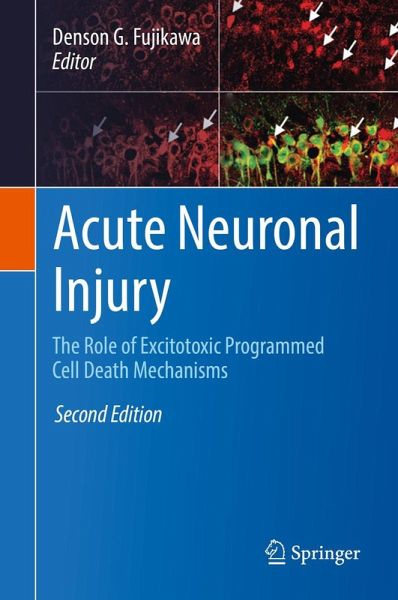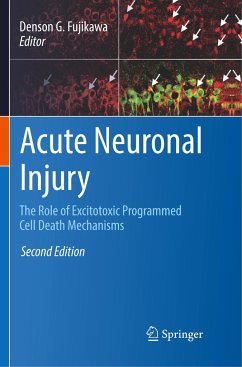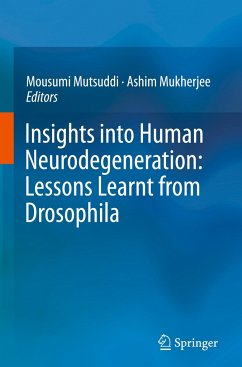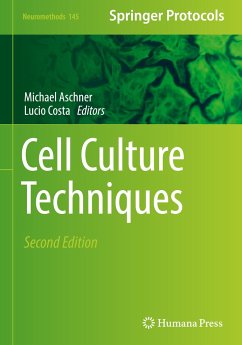
Acute Neuronal Injury
The Role of Excitotoxic Programmed Cell Death Mechanisms
Herausgegeben: Fujikawa, Denson G.

PAYBACK Punkte
38 °P sammeln!
An overview of the biochemical mechanisms that produce acute nerve cell death in the brain. Covers injuries and disorders including stroke, brain and spinal cord trauma, hypoglycemic coma, and prolonged epileptic seizures. All of these lead to high concentrations of calcium in nerve cells which, in turn, causes degradation of cytoplasmic proteins, cleavage of nuclear DNA, and eventually cell death.
The Second Edition contains 11 thoroughly updated chapters and 3 additional chapters that did not appear in the previous edition.
The Second Edition contains 11 thoroughly updated chapters and 3 additional chapters that did not appear in the previous edition.














